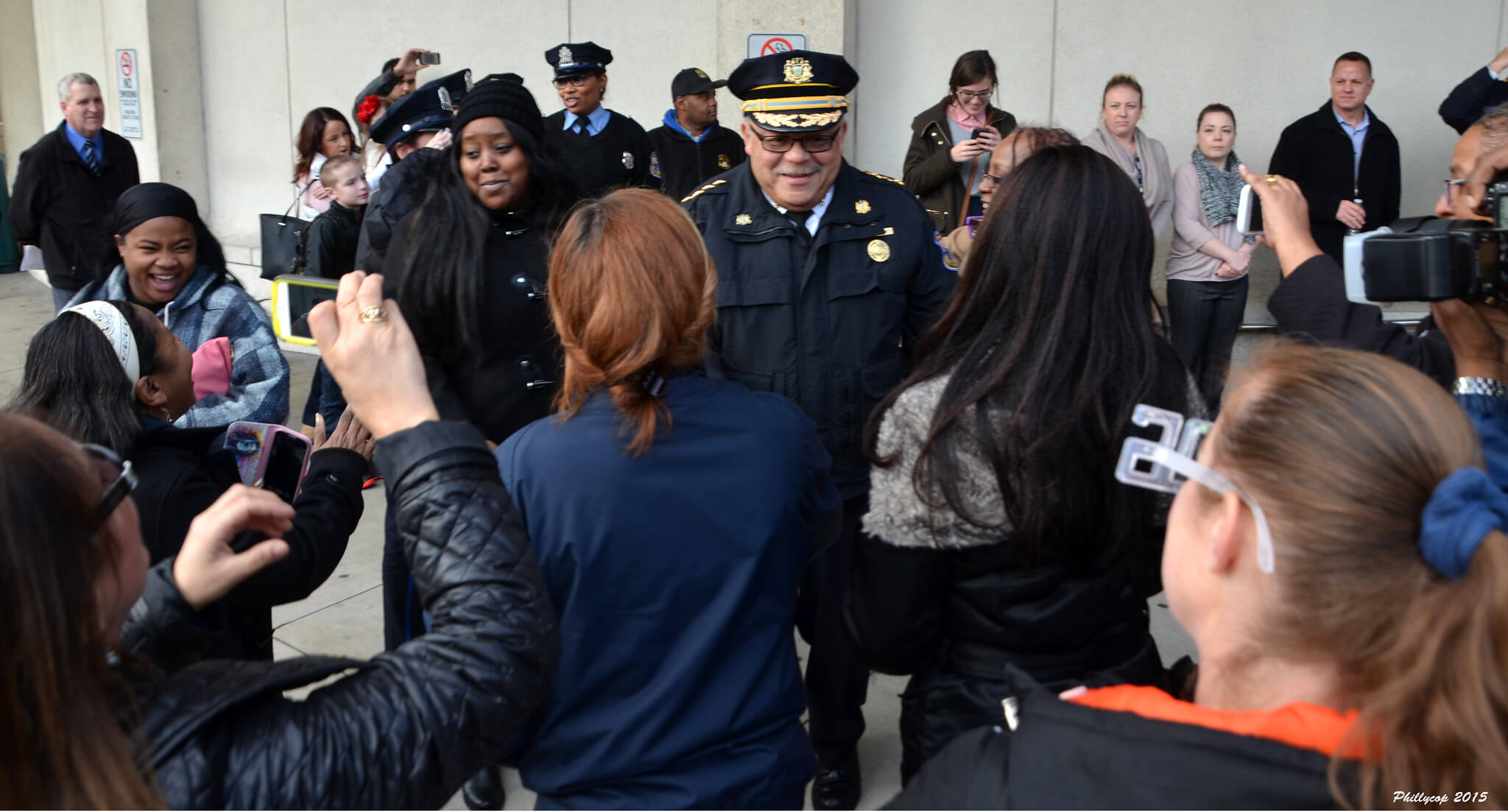The terms we now associate with police reform — transparency, equity, accountability, community policing — have been part of Charles “Chuck” Ramsey’s everyday vocabulary for what seems like ever. Years before protests erupted over the 2020 murder of George Floyd, Ramsey, the lifelong cop who served as Chief of the Metropolitan Police Department of the District of Columbia (1998 to 2007) and Commissioner of the Philadelphia Police Department (2008 to 2016), was openly fighting police corruption, excessive force, racial bias, and all kinds of irresponsibility — from the inside.
Truth be told, these righteous bouts infrequently ended in decisions his way. That’s not to say Ramsey didn’t experience great success. During his time in Philadelphia, homicides dropped 37 percent — a generational low, and officers began wearing body cams and moving out of squad cars and onto foot and bike patrols — into neighborhoods. After a 50-plus career of protecting and serving, he is still at it.
“I see police as a thread woven throughout the communities that we serve, helping to hold together the very fabric of democracy.” — Charles Ramsey
Following his so-called retirement from the PPD, Ramsey went on to co-found 21st Century Policing Solutions, a constitutionally-minded public safety consulting firm. (While serving as Philly’s top cop, he co-chaired President Obama’s Task Force on 21st Century Policing.) Harvard, Drexel, Yale and Temple have all hired him to perform safety audits.
Ramsey has received pretty much every award a law enforcement officer can receive, including leadership honors from the FBI National Executive Institute, Police Executive Research Forum, the Major Cities Chiefs Association and, most recently, the National Policing Institute. He’s taught at Penn, Drexel and Northwestern. Also, he’s getting his own postage stamp.
Ramsey joined the Chicago force as an 18-year-old cadet in the late 60s. He says his greatest lessons have been learning how to approach policing from a neighborhood standpoint. In a 2015 TED Talk, he explained that civilians, “don’t measure success by the absence of crime. They also want to see the presence of justice in their communities.”
Why don’t we measure the attitude of people in that community once [police] leave? If we make 100 stops of individuals in an area, looking for weapons, and we find one weapon, that’s good. We got one gun off the street. That’s good. But now we’ve alienated perhaps 99 others. Who wins in that? Sure as heck ain’t us.
On November 17, this “icon of policing” will sit down to talk with former Philadelphia Mayor Michael Nutter (who brought Ramsey on as commissioner) and former Atlanta Mayor Kasim Reed at The Philadelphia Citizen’s 6th annual Ideas We Should Steal Festival. While the trio will surely revisit Ramsey’s rich history — the high-profile investigations, his service on 9/11, endless examples of fighting departmental intransigence and police wrongdoing — you can bet they’ll mostly focus on what’s next in just policing. To Ramsey, change is always on the horizon. He knows, because he’s changed himself.
As a “young cop,” he says he bought into the policing “metaphor” of “the thin blue line.” Later, he reconsidered, looked into history, looked around the cities where he served, and realized, as he says in the Ted Talk:
[Police] are not something that separates good from evil. I see us as a thread woven throughout the communities that we serve, helping to hold together the very fabric of democracy. We have as much responsibility protecting the rights of those who have committed or are accused of committing crime as we do law-abiding people who are the victims of crime. That’s our responsibility, as police.
 Meet Charles Ramsey at the 2023 Ideas We Should Steal Festival presented by Comcast NBCUniversal
Meet Charles Ramsey at the 2023 Ideas We Should Steal Festival presented by Comcast NBCUniversal
Friday, November 17
Ralph J Roberts Forum at Comcast Technology Center | 1800 Arch Street, Philadelphia
![]() MORE ON POLICING FROM THE CITIZEN
MORE ON POLICING FROM THE CITIZEN





